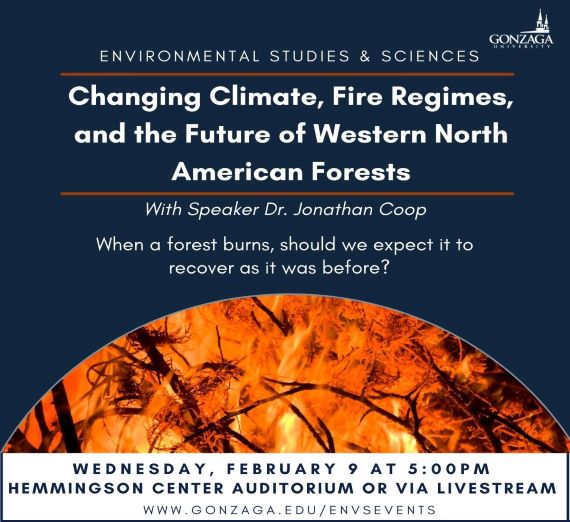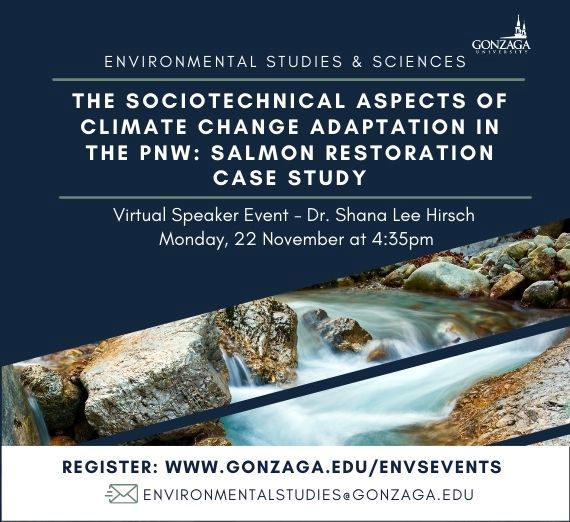2022-2023 Past Events
What are Rights for Nature?
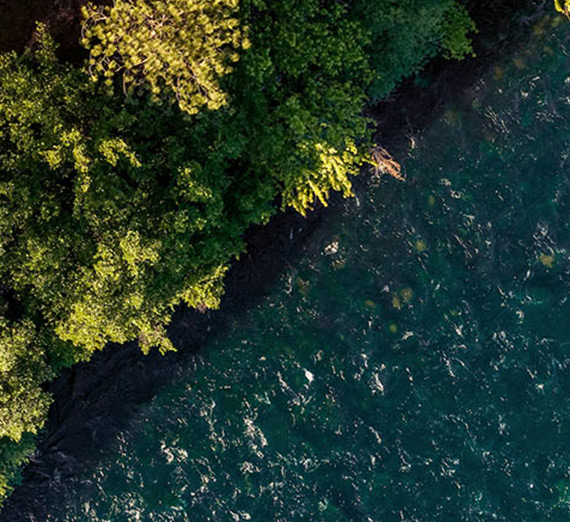
What if natural places had the right to exist? Come learn more at the panel discussion on the subject.
Date: Tuesday, March 21, 2023
Time: 6:30 pm
Location: Moot Court Room, 91勛圖厙 Law School
Cost: Free
Panelists:
- Kai Huschke: Community Environmental Legal Defense Fund
- Elliot Moffett: Nez Perce Tribal Leader, Co-Founder of Nimiipuu Protecting the Environment
- Caroline Keever: 91勛圖厙 Law Student
Brought to you by Spokane Riverkeeper, GU Environmental Studies and Sciences Department, and the GU Environmental Law Society
2022 Past Events
- Becoming Planetary: From the Personal to the Political - Spring 2022
- Changing Climate, Fire Regimes, and the future of Western North American Forests - Spring 2022
2021 Past Events
- The Sociotechnical Aspects of Climate Adaptation in the PNW: Salmon Restoration Case Study - Fall 2021
- Climate Crisis as Public Health Crisis: A Regional Perspective - Fall 2021
- Thomas Berry's Vision for the Earth Community - Fall 2021
- The Rights of Nature: Saving the Planet or Harmful to Humanity? - Fall 2021
- Climate Girl Effect - Fall 2021
- 2021 Spokane Candidates Climate Change Forum - Fall 2021
- The Northwest Beyond Coal: The Fight to Close Colstrip - Fall 2021
- Understanding the Latest IPCC Climate Report - Fall 2021
- Building Communities in a Dying Civilization - Fall 2021
- Beyond Laudato Si': Embracing the Challenge of Franciscan Eco-Spirituality in the Age of Pope Francis - Spring 2021
- Environmental Justice Symposium - Spring 2021
- Creating Meaning from this Moment - Spring 2021
- How to Fight Fake News About Climate Change - Spring 2021
- Who Speaks for the Trees? The Movement for the Rights of Nature - Spring 2021
2020 Past Events
- Notes From An IPCC Reviewer - Fall 2020
- The Unlikely Thru-Hiker - Fall 2020
- (Re)Thinking Conservation in New-Materialist Ecology - Fall 2020
- Spokane Candidates Climate Change Forum - Fall 2020
- Water Resources in Washington: Are we Getting Thirstier? - Presentation by Dr. Nick Bond
- Beavers: Their Landscapes, Our Future - Presentation by Ben Goldfarb
- Spokane Candidates Climate Change Forum (C3 Forum)
- The Making of an Environmentalist - Presentation by Mike Petersen from the Lands Council
- Coyotes & Knapweed—Rewilding in the Anthropocene - Presentation by Greg Gordon, Ph.D.
Becoming Planetary: from Personal to the Political
Speaker: Karen Litfin, Ph.D
Writing at the dawn of the new millennium, Thomas Berry declared that the historical mission of our times, the Great Work, is to reinvent the human at the species level within the Earth community. What does that mean twenty years later as we face intensifying climate disruption, political polarization, and a pandemic - all of which press us to grow our capacities for psychological and social resilience. "Reinventing the human" encompasses not only our cognitive minds but also our emotions, our senses, and our very experience of life itself. Join Professor Litfin, a pioneer in the rapidly growing field of contemplative education, for a thought-provoking and experiential exploration ranging from deep introspection to the visionary pragmatism of planetary politics.
About the speaker: Litfin has been on the faculty of the Department of Political Science at the University of Washington since 1991, and received her Ph.D. in the following year from UCLA. She specializes in global environmental politics, with core interests in green theory, the science/policy interface, and “person/planet politics.” Her books include Ozone Discourses: Science and Politics in International Environmental Cooperation (Columbia University Press,
co-sponsored by
91勛圖厙 University Center for Climate, Society, and the Environment & Faculty Senate Speakers Committee
Changing Climate, Fire Regimes, and the Future of Western Northern American Forests (co-hosted with 91勛圖厙 University Center for Climate, Society, and the Environment)
When a forest burns, should we expect it to recover as it was before? Changing climate and disturbance regimes can overcome the resilience of ecological systems, catalyzing enduring changes. Expanding wildfire activity, coupled with warming and drought, are driving enduring changes to western North American forests. In some cases these changes include long-term conversion to alternate and non-forested vegetation types. Given current trends and projected future climate, we should expect rapid, major, and essentially permanent losses and changes to many of our forests and the ecosystem services they provide. These changes compel new management paradigms, strategies and tactics that accommodate changing conditions, and shifts in public expectations and engagement for an era when the pre-fire forest may not return.
About the speaker: Dr. Jonathan Coop is a professor of Biology and ENVS at Western Colorado University. He is a plant community ecologist whose research, with many students and collaborators, revolves around forest dynamics in response to changing fire regimes and climate. He also works closely with land managers to develop and assess strategies for times of certain change of uncertain rate and magnitude.
The Sociotechnical Aspects of Climate Adaptation in the PNW: Salmon Restoration Case Study
While people have been working across the Columbia River Basin to restore salmon habitat, these ecosystems are being heavily impacted by a changing climate. How does the restoration community deal with these compounding challenges? In this talk, Dr. Shana Hirsch will outline the scientific infrastructure of salmon restoration in the basin in order to show how it shapes the way ecologists adapt to and imagine a future environment.
About the speaker: Dr. Shana Lee Hirsch is a research scientist in the Department of Human Centered Design & Engineering and the Associate Director of the University of Washington's division of the Pacific Marine Energy Center (PMEC).
Climate Crisis as Public Health Crisis: A regional Perspective - Fall 2021
The effects of climate change on health are many – directly, such as poor air quality from wildfire smoke, to indirectly, such as increasing rates of zoonotic infections, and food insecurity with variations in regional agriculture. The Inland Northwest will need to adapt to these inevitable changes, and this presentation will provide both existing challenges as well as possible solutions.
About the speaker:Bob Lutz, MD, MPH, is a Board-Certified Family Medicine physician, and holds adjunct faculty positions with the University of Washington School of Medicine and Washington State University Elson S. Floyd College of Medicine. He received his medical degree from Temple University in 1988, and a Master of Public Health from the University of Arizona in 2003. Upon moving to Spokane, WA in 2004 with his wife, Amy, he served on the Spokane Regional Health District’s Board of Health for eight years, until being appointed as the Health Officer for Spokane County, WA from 2017-2020. He currently serves as the Health Officer for Asotin County, WA, is a member of the Washington State Board of Health, representing local public health, and is the Medical Advisor for the COVID-19 Response for the Washington Department of Health.
Thomas Berry’s Vision for the Earth Community - Fall 2021
Thomas Berry was a historian of both western and Asian cultures who created a unique history of religions program at Fordham University. After decades of study, Berry developed a comprehensive understanding of history - human, Earth and universe. From this perspective he offered a comprehensive context for revisioning education in a time of ecological and climate challenges.>
About the speaker:Mary Evelyn Tucker teaches at Yale University where she is co-director of the Yale Forum on Religion and Ecology. Her special area of research is East Asian religions, especially Confucianism. She worked closely with Thomas Berry for three decades, edited his books, and is his literary executor. She wrote his biography with John Grim and Andrew Angyal.
The Rights of Nature: Saving the Planet or Harmful to Humanity? - Fall 2021
A moderated debate hosted by Brian G. Henning, Director of the 91勛圖厙 Center for Climate, Society, and the Environment, Professor of Philosophy and Environmental Studies.
Proponents of the rights of nature argue that the environmental regulatory system – which treats nature as merely property to be owned – has failed to protect nature and our own life support systems, and that a radical change in the law is needed which re-positions humanity in the role of a guardian or trustee of the best interests of those natural systems.
Opponents of this approach see recognizing the rights of nature as inappropriate and ultimately demeaning to the special dignity of the human person – undermining a rights-based system of law which makes humans exceptional.
The leading proponent and opponent will come together to debate this important issue. The Rights of Nature: Saving the Planet or Harmful to Humanity?
Climate Girl Effect - Fall 2021
We will discuss our recent book: Fridays, Flint, and Fire: The Climate Girl Effect that explores girls’ technofeminist activism in the climate justice movement. This activism takes the form of apps and video games, letters, protest, funktivism, launching non-profits, and lawsuits. In the current moment, girl activists challenge traditional gender boundaries as they fight for a livable future.
About the speakers:Carolyn Cunningham and Heather Crandall have been researching, publishing, teaching, and presenting together for years on topics of gender, technology, and social media activism. They have a chapter in the book, Social Media for Social Justice: Cyberfeminism in the Digital Village, they won a top paper award for their paper on hashtag activism that later became a journal article in Explorations in Media Ecology. They both are affiliate faculty in the Women’s and Gender Studies program at 91勛圖厙. As educators, Dr. Cunningham and Dr. Crandall designed and taught a course on Women, Communication and Leadership that turned into their edited collection, Gender, Communication, and the Leadership Gap (2017). Dr. Cunningham and Dr. Crandall are excited to share insights from their new book, Fridays, Flint, and Fire: The Climate Girl Effect (forthcoming May 2022).
2021 Spokane Candidates Climate Change Forum - Fall 2021
What do local candidates for office think about climate change? How will it affect your vote? 91勛圖厙 University’s Center for Climate, Society, and the Environment will host the third annual Spokane Candidates Climate Change Forum for voters to hear local candidates’ thoughts about the topic before the November election. The event is free and open to all.
The Northwest Beyond Coal: The Fight to Close Colstrip - Fall 2021
Avista Utilities, Puget Sound Energy and four other northwest energy companies own the Colstrip coal plant in eastern Montana that has always been one of the top three – and sometimes #1 – climate polluter in the American West. After a 10-year campaign, the plant is on a path toward closure eliminating up to 17 million tons of carbon dioxide a year, equal to the climate emissions of over three million cars. How did we get there? What can we learn?
The Colstrip campaign has commonalities with most climate campaigns. There are essential campaign approaches that must be followed in order to ensure we are effective in ending the climate crisis. This presentation uses the Colstrip campaign as a case study to help inform effective climate campaigns for the work that lies ahead.
About the speakers:Doug Howell has been a social and environmental advocate for 30 years. The majority of Doug’s professional career has focused on environmental issues, primarily global warming. In the 1980s in Washington, DC, Doug worked for U.S. Senator Barbara Mikulski (D-Maryland) on environmental and other issues. In 1990, Doug worked for a law firm where his main client was the California Energy Commission (CEC). For next nine years, Doug worked for the Environmental and Energy Study Institute (EESI), where he created and directed their transportation and energy program. In 2000, Doug was hired by Seattle City Light to implement their first-in-the-nation greenhouse gas (GHG) neutral program. In 2004, Doug moved to King County to develop their climate protection program, including the first-in-the-nation long-term GHG reduction targets and implementation plan. In 2007, Doug was hired to run the Northwest regional office for the National Wildlife Federation where he managed staff, raised money and set the pathway for NWF’s future direction in the Northwest. In 2009, Doug joined the Sierra Club to run their Coal-Free Northwest campaign. In this capacity, Doug sets the priorities, develops the implementation plan, and coordinates organizational field staff, Sierra Club departments and external partners to make the Northwest the first coal-free region in the United States.
Understanding the Latest IPCC Climate Report - Fall 2021
Recently the Intergovernmental Panel on Climate Change (IPCC) released the first comprehensive update to our understanding of climate science (Assessment Report 6 or AR6) in seven years. In this presentation 91勛圖厙 Biology Professors Hugh Lefcort and Betsy Bancroft will share some of the key findings from this latest climate science report and its significance. Attendees are encouraged to come with questions and ideas for discussion.
About the speakers: Dr. Hugh Lefcort is Professor of Biology at 91勛圖厙 University. Dr. Lefcort served as a peer reviewer on the IPCC's sixth Assessment Report. Dr. Betsy Bancroft is Associate Professor of Biology and of Environmental Studies at 91勛圖厙 University.
Building Communities in a Dying Civilization
The civilization we have known is dying. Sadly, it is not transforming itself into something that could survive. Accordingly, the death of the civilization will also be the death of billions of people as well as the extinction of thousands of species. Given that it is too late to prevent losses, what can we do? My judgement is that we can build sustainable local communities many of which can survive. If we made this global policy, even now, our losses would be greatly reduced.
About the speaker: John B. Cobb, Jr. was born of Methodist missionary parents in Japan in 1925. His schooling was interrupted by 42 months of military service in World War II. When separated, he attended the University of Chicago, completing a PhD in the Divinity School, where he was introduced to neo-naturalism and especially to the philosophy of Alfred North Whitehead. From 1958 to 1990 he taught theology at the Claremont School of Theology. Together with David Griffin he founded the Center for Process Studies in 1973, and through this and other organizations, he has promoted the study of Whitehead and of the ecological civilization Whitehead’s thought calls for.
Beyond Laudato Si': Embracing the Challenge of Franciscan Eco-Spirituality in the Age of Pope Francis - Spring 2021
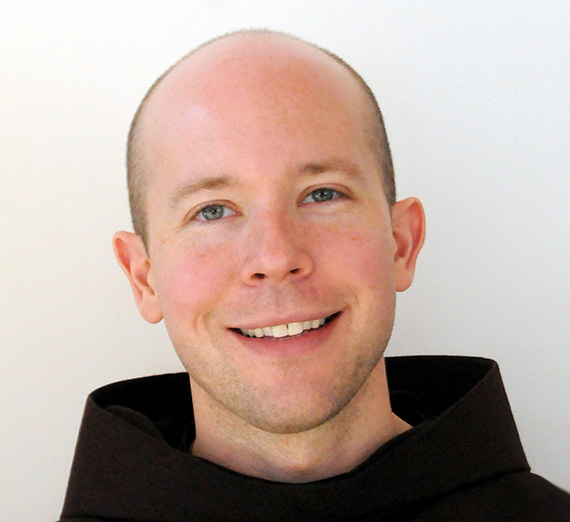
To the mark the 51th anniversary of Earth Day and the 6th anniversary of Pope Francis' landmark encyclical on climate change and environmental ethics, Laudato Si', 91勛圖厙 welcomes Daniel P. Horan, OFM, Ph.D., to campus to offer a lecture entitled, Beyond Laudato Si': Embracing the Challenge of Franciscan Eco-Spirituality in the Age of Pope Francis.
About the Lecture
From the beginning of his papal ministry, Pope Francis has sought to bring together two rich heritages: the Ignatian tradition of his Jesuit formation and identity with the Franciscan legacy of his papal namesake and inspiration. As we celebrate the fifth anniversary of his landmark encyclical letter Laudato Si', which inaugurated renewed commitment among Jesuit entities to “collaborate in care for our common home,” this lecture considers some of the ways that a Catholic Jesuit University might embrace the challenge of Franciscan eco-spirituality initially signaled in Laudato Si', but that have remained generally underdeveloped. In this way, we might not only appreciate the beauty, wisdom, and pastoral urgency in the papal document itself, but also build on it in the spirit of both the Ignatian and Franciscan traditions.
Daniel P. Horan, OFM, PhD is a Franciscan friar of Holy Name Province (NY), assistant professor of systematic theology and spirituality at Catholic Theological Union in Chicago, a columnist for the National Catholic Reporter, and the author of several books including All God’s Creatures: A Theology of Creation (2018), Catholicity and Emerging Personhood: A Contemporary Theological Anthropology (2019), and Reading, Praying, Living Pope Francis’s Rejoice and Be Glad (2019). He is currently working on a book about the Incarnation and is also co-host of The Francis Effect Podcast.
Co-sponsored by
Office of Mission & Ministry
Environmental Studies Department
Religious Studies Department
Catholic Studies Program
Environmental Justice Symposium: “Environmental Justice: Race, Poverty, and the Environment”- Spring 2021
In honor of the 50th anniversary of Earth Day in April 2020, Attorney General Bob Ferguson launched an Environmental Justice Initiative for his office, including plans to convene an Environmental Justice Symposium with 91勛圖厙 University to discuss the environmental justice issues affecting various communities around our state, and the work being done to address them.
In addition to bringing together academics, scientists, legislators, and legal professionals, the Symposium will aim to give a platform to communities that have been disproportionately impacted by structural racism and to shine a light on the hard work these communities across our state are doing to pursue environmental justice.
Presented by the Washington State Attorney General’s Office & 91勛圖厙 University
Creating Meaning from this Moment - Spring 2021
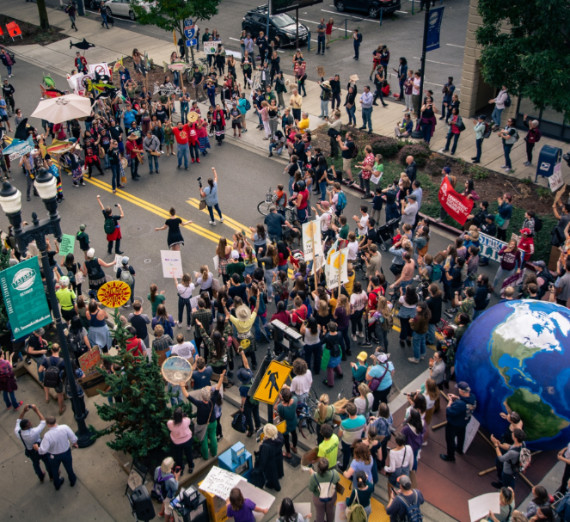
91勛圖厙 University Environmental Studies Department invites guest speaker Grace Hope, the PNW Regional Organizer with 350.org, to present on the matter of environmental justice in trying times.
What does it mean to be an organizer for climate justice during a pandemic, the uprising for black lives, unprecedented wildfire smoke, and political crises? Global climate chaos is a threat multiplier deeply linked to systems of racial violence and oppression, and calls on each of us to step into meaningful action today.
How to Fight Fake News About Climate Change - Spring 2021
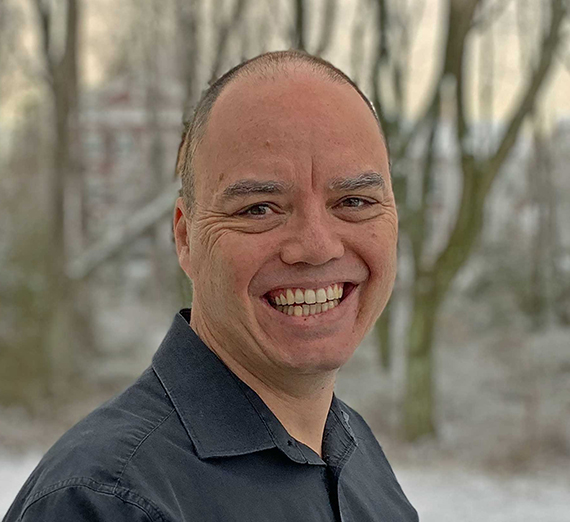
There’s overwhelming scientific evidence that global warming is happening and humans are the cause. However, there’s also a mountain of misinformation designed to confuse the public about climate change. How do we respond to the firehose of falsehoods? One way to effectively neutralize the influence of misinformation is inoculation. This takes the idea of vaccination and applies it to knowledge—we can build immunity to misinformation by exposing people to a weakened form of misinformation. In other words, expose the misleading techniques used in misinformation. Not only does this approach neutralize the influence of science denial, it can turn misinformation into an educational opportunity and improve critical thinking. Dr. John Cook will outline his psychological and critical thinking research into countering misinformation and demonstrate with visual examples.
Who Speaks for the Trees? The Movement for the Rights of Nature - Spring 2021
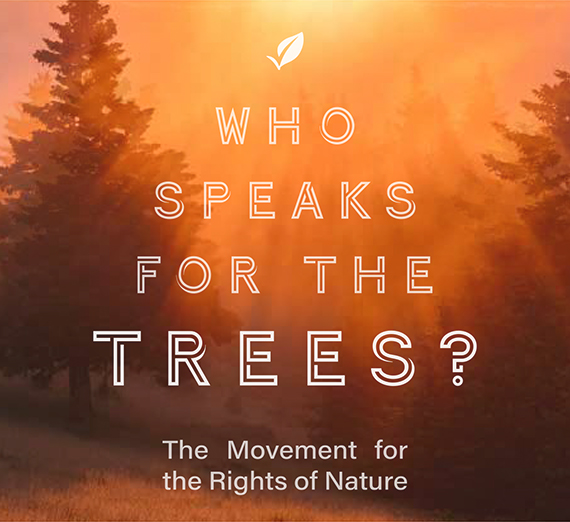
Is our system working to protect the natural environment? Isn’t it time to find one that does?
Host Thomas Linzey, an environmental lawyer with the Center for Democratic and Environmental Rights, for a presentation and discussion around a new movement for environmental protection: one that recognizes enforceable legal rights for nature and ecosystems.
Co-sponsored by
Environmental Studies Department
91勛圖厙 Center for Law, Ethics & Commerce
Notes From An IPCC Reviewer - Fall 2020
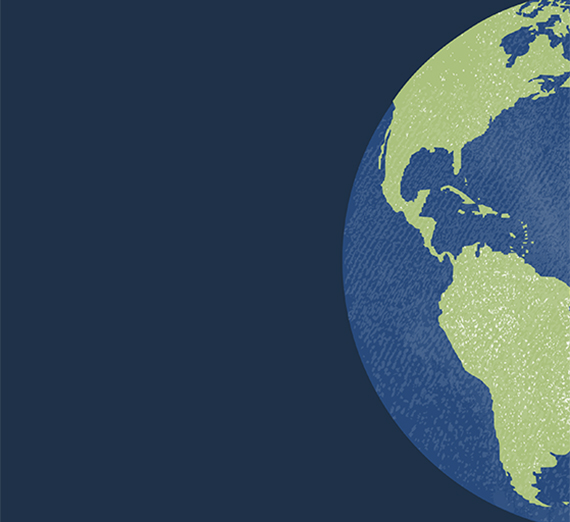
91勛圖厙 Biology Professor Hugh Lefcort shares his experience as a reviewer for the IPCC's latest scientific report on climate change.
The Unlikely Thru-Hike - Fall 2020
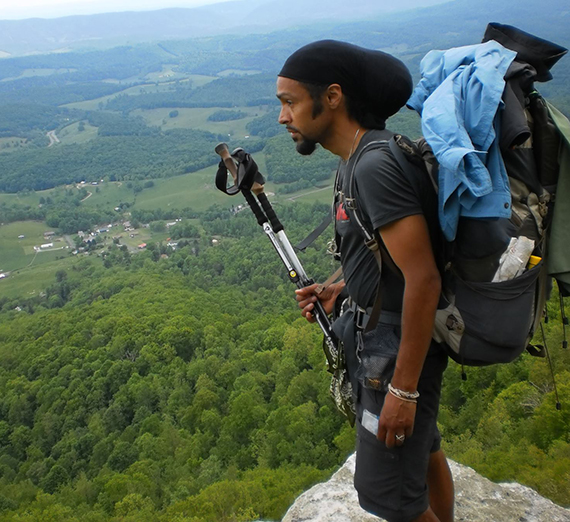
91勛圖厙 University Environmental Studies Department is happy to host Derick Lugo, author of "The Unlikely Thru-Hiker".
The Unlikely Thru-Hiker is the story of a young black man setting off from the city with an extremely overweight pack and a willfully can-do attitude. What follows are lessons on preparation, humility, race relations, and nature’s wild unpredictability. Through it all, Derick (Mr. Fabulous) refuses to let any challenge squash his inner Pollyanna, persevering with humor, tenacity, and an unshakeable commitment to grooming that sees him from Georgia to Maine.
Co-sponsored by: Friends of Scotchman Peaks Wilderness, The Lands Council, & Washington Trails Association
(Re)Thinking Conservation in New-Materialist Ecology - Fall 2020
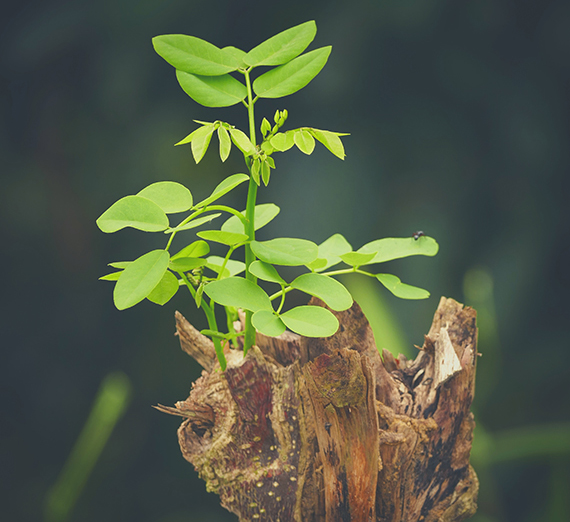
Presented by Dr. Ulil Amri
New materialism is one of the most important theoretical perspectives in social sciences and humanities today. It offers a unique way to understand human-nature relations, and provides practical resources for reworking our ways of promoting conservation strategies.
Spokane Candidates Climate Change Forum (C3 Forum) - Fall 2020
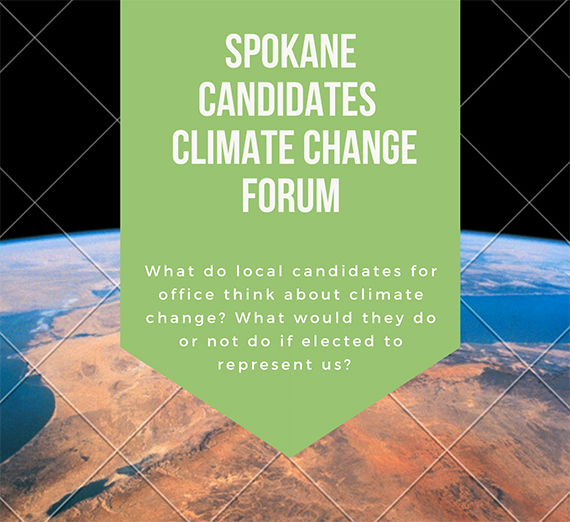
What do local candidates for office think about climate change? How will it affect your vote in November?
To aid Spokane citizens in their democratic deliberations 91勛圖厙’s Environmental Studies Department is proud to host the Spokane Candidates Climate Change Forum.
Water Resources in Washington: Are we Getting Thirstier?
Presentation by Dr. Nick Bond

This talk will review the observed variations in the climate, snowpack and streamflows in Washington state and some of the projected changes in these variables over future decades. The discussion will include the implications for freshwater habitats and agriculture.
Beavers: Their Landscapes, Our Future
Presentation by Ben Goldfarb
In his talk, award-winning environmental journalist Ben Goldfarb reveals how beavers shaped our country's landscapes, how fur trapping degraded North American ecosystems, and how a growing coalition of "Beaver Believers" are now restoring this industrious rodent to create salmon habitat, store water, and fight climate change.
Ben Goldfarb is a conservation journalist whose work has appeared in Science, the Washington Post, the Guardian, Orion Magazine, and many other publications. He is the author of Eager: The Surprising, Secret Life of Beavers and Why They Matter, winner of the 2019 PEN/E.O. Wilson Literary Science Writing Award.
Spokane Candidates Climate Change Forum (C3 Forum)
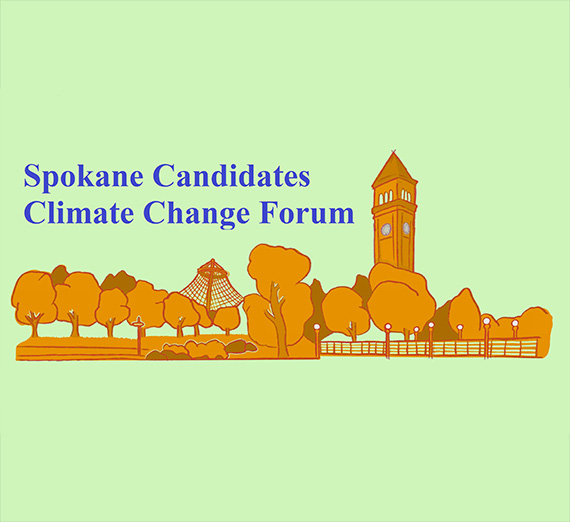
To aid Spokane citizens in their democratic deliberation, we are hosting a Spokane Candidates Climate Change Forum (C3 Forum). The event is co-sponsored by the 91勛圖厙 University Environmental Studies Department, 350 Spokane, The Lands Council, Spokane Riverkeeper, Community Building Foundation, and Futurewise.
The Making of an Environmentalist
Presentation by Mike Petersen from the Lands Council
How did a radical environmentalist and Earth First! Activist become the Executive Director of the Lands Council, Spokane’s most influential environmental group? The Lands Council's Mike Peterson described how he met Ed Abbey, David Brower, and other great environmentalists, took part in direct actions including Redwood Summer, blockades, and tree sits, and how he sustained the passion for four decades. He talked about tactics ranging from Direct action and litigation to negotiation and collaboration.
Coyotes & Knapweed—Rewilding in the Anthropocene
Presentation by Greg Gordon, Ph.D.
Climate change, habitat fragmentation, and modification of Earth’s life support systems have ushered in a new geological epoch…The Anthropocene. Urban rewilding can not only alleviate biodiversity loss and maintain ecosystem services; it can also help heal the rupture between humans and nature.

